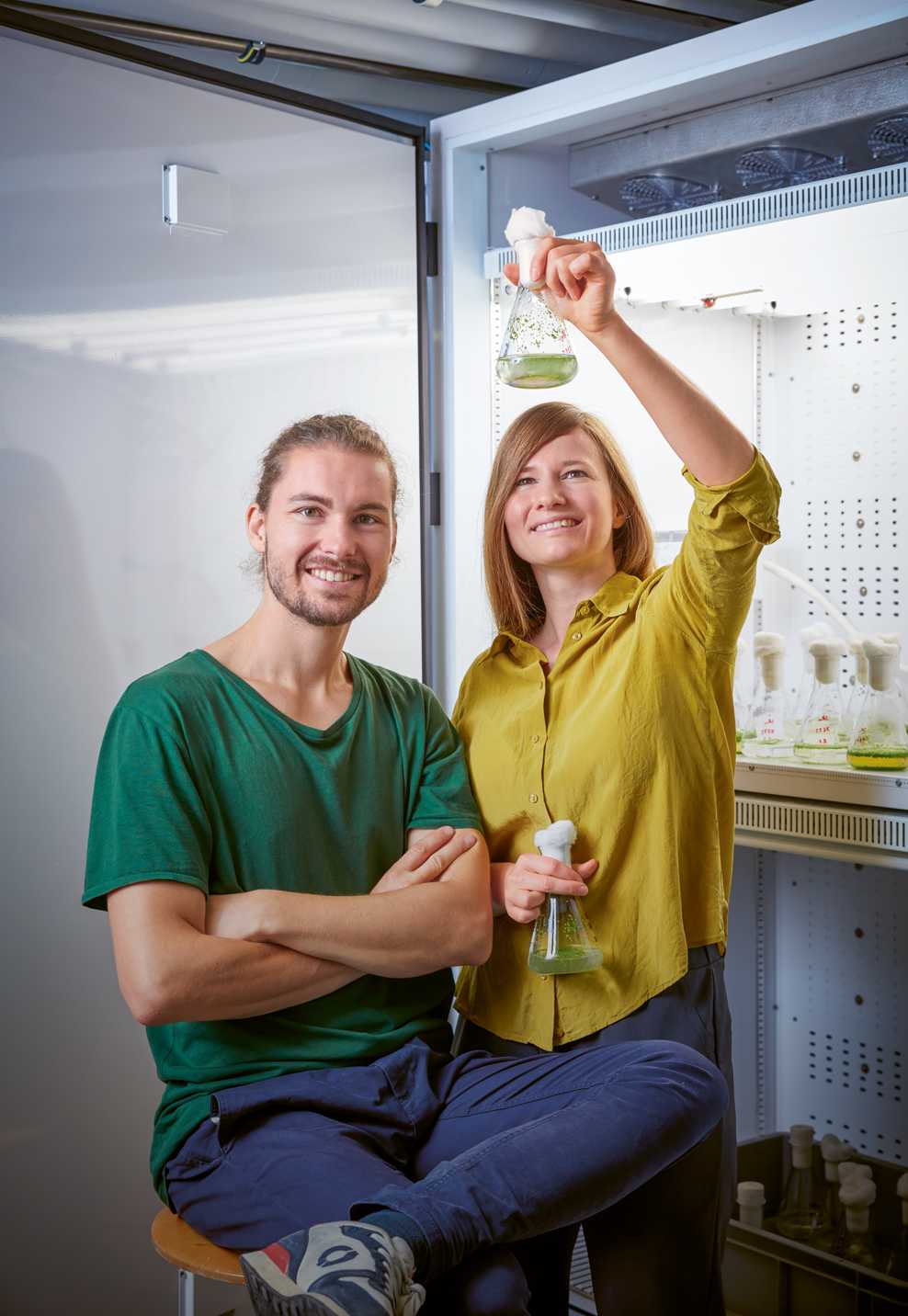The duckweed challenge
- D-USYS
- Institute of Agricultural Sciences
Championing a type of duckweed known as wolffia: two ETH Zurich Pioneer Fellows want to introduce us to a new protein source.
Wolffia as a smoothie, a salad, a protein powder – what makes this more than just the latest food hype?
CYRILL HESS – Wolffia grows very quickly. Under optimal conditions, it can double in mass in a day. It can also be grown in stacked layers – a practice known as “vertical farming” – and you can eat the entire plant. All of this makes it uniquely resource-efficient. In addition, wolffia has a very high protein content, so it is an excellent alternative source of protein – a nutritional trend in the west with a positive global impact that is likely to be more than just hype.
The plant has long been on the menu in Asia, where wolffia is traditionally skimmed from ponds. Why has no one come up with the idea of producing it on an industrial scale for the European market before now?
MELANIE BINGGELI – As we are well connected with the worldwide duckweed community, including emeriti from various countries, we know that initial attempts were made several decades ago and that they all failed. The problem lies in plant diseases that can spread to devastating effect in large production facilities.
"Industry has recognised the relevance of this field: there’s been a huge amount of interest in our research."Melanie Binggeli, Pioneer Fellow, ETH Zurich
How is your spin-off LemnaPro in a position to tackle this challenge?
CYRILL HESS – Progress in the world of agritech means that we are in a better position than our predecessors. We are currently in the process of establishing Zurich as a competence centre for duckweed, bringing together researchers from ETH Zurich and ZHAW with a range of expertise who can contribute important pieces of the puzzle and who are enthusiastic about the potential of wolffia.
MELANIE BINGGELI – It’s worth remembering that ETH emeritus Elias Landolt, who sadly died in 2013, was an absolute luminary in the field of duckweed. In his last will, he left his unique collection of living plants to be cared for by his long-term assistant in Zurich. This collection of hundreds of different strains is invaluable to our research.
How much does it mean to you that ETH Foundation donors are helping to fund your business idea through the Pioneer Fellowship?
MELANIE BINGGELI – We’re extremely grateful for this opportunity! It allows us to invest a full year focusing on our vision. And the ETH Innovation and Entrepreneurship Lab (ETH ieLab) is providing outstanding support, with its expertise, network and training.
CYRILL HESS – We’re doing this because we want to make a meaningful contribution to our society. The Pioneer Fellowship allows us to shape our business day by day, and also, to some extent, our world. The fact that other people believe in our vision is a huge motivating force.
Pioneer Fellowships by ETH Foundation
ETH Zurich wishes to maintain and expand the Pioneer Fellowship programme, which is largely funded by donations. The Fellows are supervised by the ielab.
ETH Zurich Pioneer Fellowship programme
Since the 1990s, ETH Zurich has been supporting the foundation of companies based on its research achievements. The objective is to turn such research results into marketable products and to create qualified jobs: spinoff.ethz.ch.
The interview above has been published in the ETH Foundation's magazine external page "Uplift" in December 2019.

